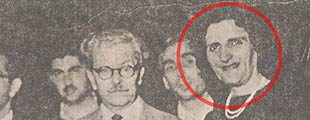During these years, Taleh met musical luminaries such as Abolhassan Saba, Morteza Khan Nai Davoud, Musa Khan Nai Davoud, and Qamar-ul-Muluk Vaziri, the legendary female voice of Persian classical music. Collaborating with them marked one of the most fruitful periods of his life. Through these partnerships, Taleh learned to merge poetry with music in ways that moved audiences profoundly. Qamar-ul-Muluk Vaziri’s powerful voice often carried Taleh’s lyrics to the masses, making his verses part of Iran’s cultural memory.
Tehran in those days was an open, cosmopolitan city where creativity flourished. Various cultural associations, literary circles, and musical gatherings offered platforms for intellectual exchange. Taleh immersed himself completely in this vibrant environment—writing, composing, performing, and even dabbling in theater. He authored several plays that reflected his social observations, often portraying the struggles of ordinary people with compassion and humor.
The Poet of Compassion and Memory
Taleh was not content merely to entertain; he sought to honor the noble and hardworking individuals of his society. His poetry emerged from a place of deep empathy—a reflection of his understanding of what it meant to belong to a minority community and yet remain fully Iranian. As a member of Iran’s Jewish community, Taleh experienced firsthand the challenges of living as part of a religious minority. Yet, instead of retreating into isolation, he used art as a bridge of communication.

